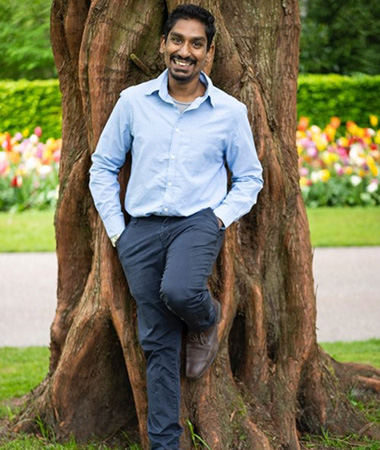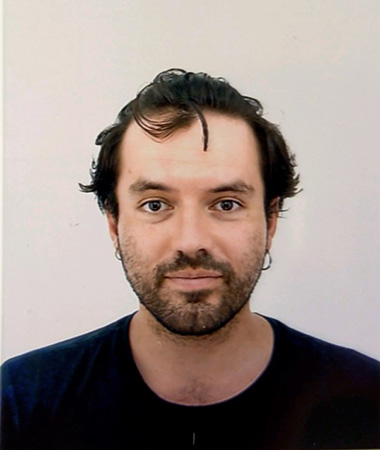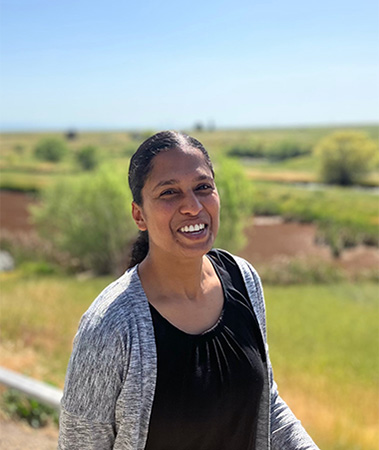First Person
Representation and Relevance: Diverse Scholars Share Ideas for a More Equitable Field


Editor’s note: In this edition of Student Notebook, we invited diverse scholars within the APSSC community to share some of their perspectives and experiences as young scholars from marginalized groups and their hopes for creating a more inclusive and equitable psychological science. We welcome hearing from others as well. If you would like to contribute to Student Notebook, please email [email protected] —Doroteja Rubez, Case Western Reserve University
Kunalan Manokara: “The world is not a predominantly WEIRD place”
Kunalan Manokara (he/him/his) will be defending his thesis at the University of Amsterdam (Netherlands) this year. He is currently a postdoc at York University (Canada). His research examines how people make sense of emotional expressions, particularly in highly charged intergroup contexts. His term as president of the APS Student Caucus is from June 2022–May 2023.
Why do you think it is important to address equity, diversity, and inclusion (DEI) in psychological science?

The research we conduct should be reflective of the people we are aiming to represent and serve. Given that the world is not a predominantly WEIRD place, including views from a wide range of people only serves to enhance the quality of our science. But moving beyond generalizability concerns, perhaps the greatest merit of DEI relates to the (sometimes critical) perspectives that scholars from diverse backgrounds bring to the table. Questioning the status quo is often argued to be the hallmark of good science, and given their circumstances, the intellectual input of such scholars would be key to pushing the boundaries of our available knowledge.
In your experience, what challenges are more commonly faced by members of underrepresented groups currently in psychological science?
It can be especially difficult to incorporate divergent perspectives when established (theoretical or empirical) narratives have been crystallized in the field. Although researchers from diverse backgrounds may provide fresh angles on preexisting phenomena, the response they receive for their insights could be mixed. As is, it can be tricky for young scholars to find their voice when navigating a complex system full of invisible rules and norms (also known as the hidden curriculum). This difficulty is only amplified for scholars of diverse backgrounds, who may not know how to advocate for themselves or for their ideas.
What strategies and practices do you suggest should be implemented to address these challenges and advance efforts toward a more equitable field?
Cultivating an inclusive work environment is key. From the perspective of mentor–mentee relations, it would be helpful for both parties to find common ground with regard to the merits (and disadvantages) they see in me-search. Having proper representation in key decision-making bodies would also go a long way, but especially so if organizers are cognizant of (at least) two things: which facets of diversity are being represented (and notably missing), as well as the time tax that is placed upon these scholars.
Enzo Cáceres Quezada: “Mainstream psychological knowledge does not resonate with [our] experiences”
Enzo Cáceres Quezada (he/him/his, gay, White Latinx identifying person) is a PhD candidate in the social psychology department at the University of Amsterdam. His PhD dissertation seeks to understand the interplay between identity strategies and difference-evasion in inequality settings, specifically regarding ethnicity, sexual orientation, and gender identity.
Why do you think it is important to address equity, diversity, and inclusion (DEI) in psychological science?

The history of science and our field shows that knowledge has been built up by a very marginal portion of the world population, creating a scientific project that nevertheless sought to speak for humanity as a whole. As such, this scientific endeavor founded a universalist humanism that has been criticized for remaining blind toward historical and material differences between people and regions of the world. This approach has hindered the substantive development of scientific knowledge by smuggling the perspective of the few as if it were the reality of the many. This has had diverse consequences, ranging from blatant oppression against Black and indigenous people, LGBT+ folks, women, and disabled bodies, to more subtle ways of muting alternative voices in our discipline.
Although there has been progress, it is critical that we acknowledge our position as heirs to this history, as it shapes our scientific practices and the social environments where we produce science. By addressing equity, diversity, and inclusion in our discipline and institutions, we can contribute to deepening our understanding of the multifaceted nature of the social world. Most importantly, equity, diversity, and inclusion seem to me a way of enabling forms of doing science that actually allows us to envision a truly livable future by making psychology a way for people to take ownership of their reality.
In your experience, what challenges are more commonly faced by members of underrepresented groups currently in psychological science?
I want to address two issues: instrumentalization/tokenism and epistemological gatekeeping. The discourse of diversity can be deeply instrumentalized, usually by those in positions of power who belong to dominant social groups. This can be profoundly discouraging for members of minoritized groups, who may witness a double standard where those who speak in the name of diversity act in ways that contradict this rhetoric. Such a cynical environment is antithetical to scientific knowledge, which is intended to inspire hope by fostering realistic manners of paving the way for a livable future.
Additionally, members of minoritized groups may find that mainstream psychological knowledge does not resonate with their experiences. This is not surprising, given that this knowledge has been developed predominantly by individuals with dominant social identities and experiences. Although this mismatch can inspire minoritized group members to contribute to knowledge-making, the process of taking ownership of a science that was not built to enable their voices is long and arduous and requires material and human support, care, and ethical commitment from all members of the scientific community. It is essential that dominant group members recognize the barriers that minoritized group members face and work to remove them in order to foster a more equitable and inclusive scientific community.
What strategies and practices do you suggest should be implemented to address these challenges and advance efforts toward a more equitable field?
Firstly, the curriculum must integrate diversity and equity throughout the entire educational cycle, rather than just as a standalone course. This means including different methodological approaches (such as quantitative, qualitative, and mixed methods), diverse epistemological traditions (such as post-positivism, constructivism, and constructionism), and schools of thought present in our discipline but usually muted (such as the class perspective, decoloniality, queer studies, gender and feminism, and ecologism). Also, including specialized courses addressing socially relevant issues is necessary to build up more diversity-cognizant scientific communities. Lastly, courses that interrogate the history of our discipline appear pivotal to cultivate a critical approach toward knowledge-making.
In terms of the composition of students and faculty, there are several potential avenues. These include experimenting with positive actions to attract marginalized group members, such as BIPOC, first-generation university students, LGBT+ individuals, people with disabilities, and women, during both the recruitment of students and hiring procedures. Establishing permanent DEI committees, with participation from different levels of the scientific community (pre- and postgraduate students, administrative workers, and faculty workers) is another essential step toward monitoring and proposing policies to improve diversity, equity, and inclusion within our communities.
By taking action on all of these fronts, we can create a scientific community that is not only more diverse, equitable, and inclusive but also better equipped to develop the deep, comprehensive knowledge we need to realistically envision a livable future.
Sivenesi Subramoney: “People are less willing to participate in research that doesn’t capture the nuances of their lived experience”
Sivenesi Subramoney is a 4th-year PhD candidate in developmental psychology at the University of California, Merced. Her research interests are in emotions in interpersonal contexts. She is particularly interested in how individuals navigate emotions in multicultural settings. Her current research is on emotion brokering, which refers to how people help others navigate culturally different emotion norms.
Why do you think it is important to address equity, diversity, and inclusion (DEI) in psychological science?

Currently, most of what we know about human behavior is based on research that has been conducted on a small portion of the global population. To broaden our understanding, we must work to increase the diversity of both the populations represented in the science and the researchers conducting the science.
In your experience, what challenges are more commonly faced by members of underrepresented groups currently in psychological science?
The challenges are quite complex. One significant issue is the lack of diversity in study samples. When members from underrepresented groups are included in research, there is the risk that findings are affected by cultural biases. Unfortunately, people are less willing to participate in research that doesn’t capture the nuances of their lived experience. A second issue arises when researchers from underrepresented groups navigate academia. The structural and interpersonal challenges members of underrepresented groups face often lead to feelings of exclusion and isolation. This unfortunately distracts researchers from the research that they are so passionate about pursuing.
What strategies and practices do you suggest should be implemented to address these challenges and advance efforts toward a more equitable field?
I believe that it is important to make conference attendance and society memberships accessible to scholars from diverse socioeconomic backgrounds, across the globe. Equitable access to disseminate research is a way to show members from underrepresented groups that their contribution to science is valued. We also need to address equity in the peer-review and publication process. When reviewing work, we need to be more accepting of the fact that well-known findings do not always replicate in different contexts. There are many talented scientists across the world, but we often don’t have the opportunity to read their work due to financial barriers in publishing findings.
Student Notebook serves as a forum in which APS Student Caucus members communicate their ideas, suggestions, and experiences. Read other Student Notebook columns here, and learn about the benefits of Student Membership.
Interested in submitting a Student Notebook article of your own? Learn more and indicate your interest by clicking here (logged-in APS members only).
Feedback on this article? Email [email protected] or login to comment. Interested in writing for us? Read our contributor guidelines.





APS regularly opens certain online articles for discussion on our website. Effective February 2021, you must be a logged-in APS member to post comments. By posting a comment, you agree to our Community Guidelines and the display of your profile information, including your name and affiliation. Any opinions, findings, conclusions, or recommendations present in article comments are those of the writers and do not necessarily reflect the views of APS or the article’s author. For more information, please see our Community Guidelines.
Please login with your APS account to comment.